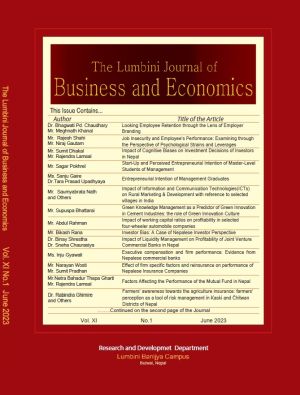Effects of Fiscal Policy on Economic Growth: Empirical Evidence from South Asian Countries
DOI:
https://doi.org/10.3126/ljbe.v11i1.54334Keywords:
Fiscal Policy, Economic Growth, Government Tax Revenue, Government ExpenditureAbstract
This study aims to find the effects of fiscal policy variables on economic growth in South Asian nations based on panel data of 21 years from 2001 to 2021.The study adopted descriptive and causal relationship research design. In this study, the correlation matrix is used to describe the relationship between variables, and the hausman test is applied to select the fixed and random effect models. The results revealed that gross capital formation and public debt had significant and positive effect on economic growth in South Asian countries. Tax revenue was found to have significant but negative effect on economic growth while government expenditure was found to have insignificant and positive effect on economic growth. The study therefore concludes that fiscal policy has significant relationship with economic growth in South Asian Countries. Additionally, efforts should be made while implementing fiscal reforms that focuses public expenditure to a manageable and specified economic sectors.




